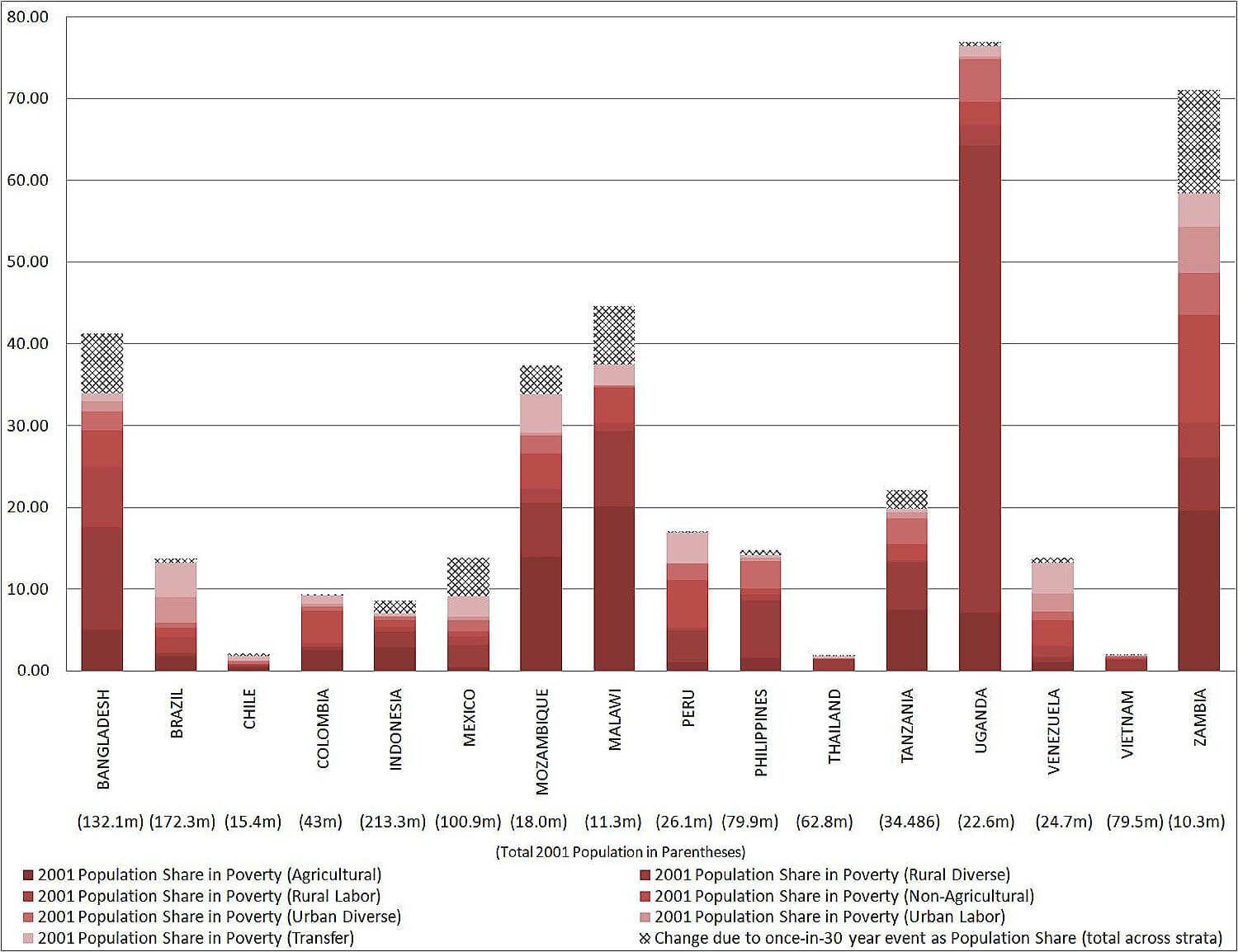Graph of the Day: Change in Poverty Due to Climate Change in 16 Developing Nations
(Purdue University) Urban workers could suffer most from climate change as the cost of food drives them into poverty, according to a new study that quantifies the effects of climate on the world’s poor populations. A team led by Purdue University researchers examined the potential economic influence of adverse climate events, such as heat waves, drought and heavy rains, on those in 16 developing countries. Urban workers in Bangladesh, Mexico and Zambia were found to be the most at risk. A team led by Purdue University researchers examined the potential economic influence of adverse climate events, such as heat waves, drought and heavy rains, on those in 16 developing countries. Urban workers in Bangladesh, Mexico and Zambia were found to be the most at risk. “Extreme weather affects agricultural productivity and can raise the price of staple foods, such as grains, that are important to poor households in developing countries,” said Noah Diffenbaugh, the associate professor of earth and atmospheric sciences and interim director of Purdue’s Climate Change Research Center who co-led the study. “Studies have shown global warming will likely increase the frequency and intensity of heat waves, drought and floods in many areas. It is important to understand which socioeconomic groups and countries could see changes in poverty rates in order to make informed policy decisions.” The team used data from the late 20th century and projections for the late 21st century to develop a framework that examined extreme climate events, comparable shocks to grain production and the impact on the number of impoverished people in each country. Thomas Hertel, a distinguished professor of agricultural economics and co-leader of the study, said that although urban workers only contribute modestly to total poverty rates in the sample countries, they are the most vulnerable group to changes in grains production. “Food is a major expenditure for the poor and, while those who work in agriculture would have some benefit from higher grains prices, the urban poor would only get the negative effects,” said Hertel, who also is executive director of Purdue’s Center for Global Trade Analysis. “This is an important finding given that the United Nations projects a continuing shift in population concentrations from rural to urban areas in virtually all of these developing countries.” … A paper detailing the work will be published in Thursday’s (Aug. 20) issue of Environmental Research Letters. …
Study of 16 developing countries shows climate change could deepen poverty
